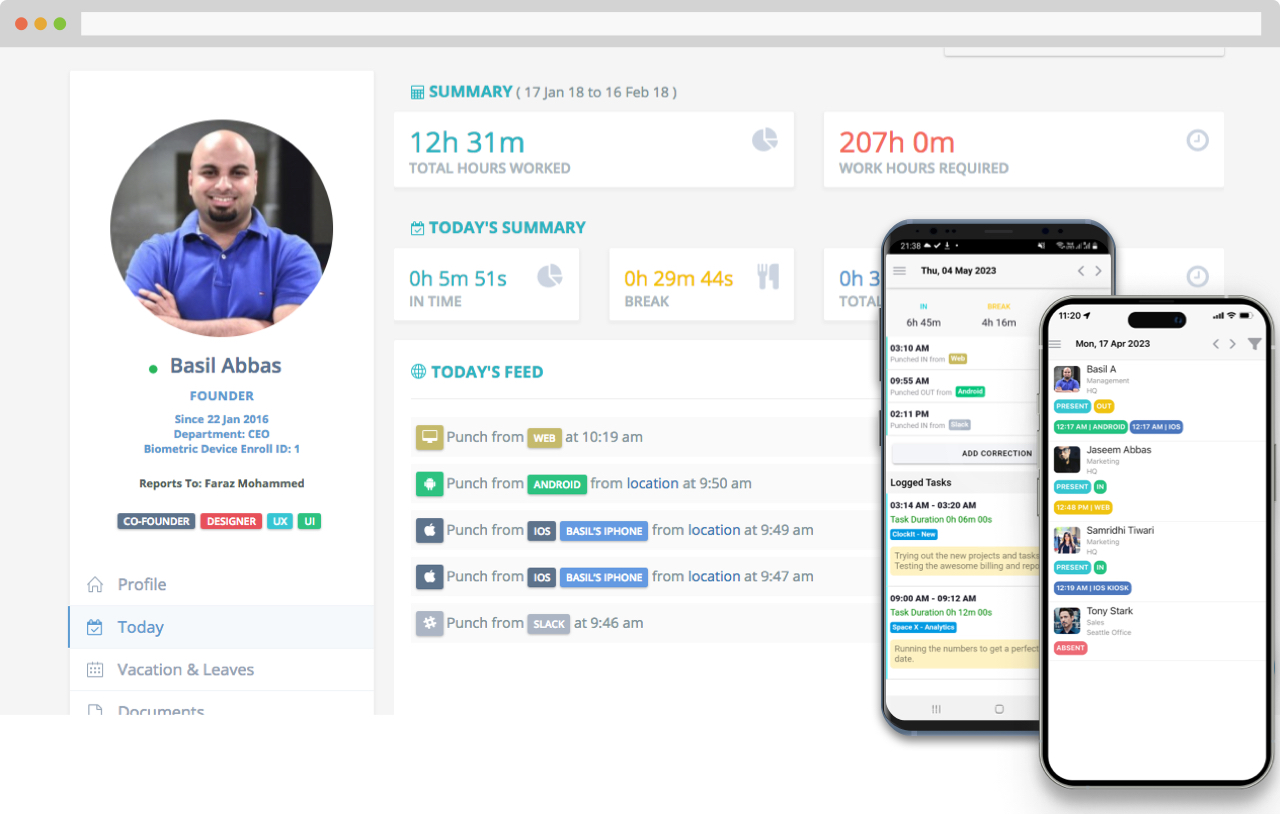
Paid Time Off, commonly known as PTO, is a policy that allows employees to take time away from work and still receive their regular pay. Unlike traditional leave systems that separate vacation, sick leave, and personal days, PTO pools these into a single bank of hours that employees can use at their discretion. The goal is to give employees more flexibility to use their time off in a way that best suits their needs. PTO is generally accrued over time, based on the number of hours worked or a set accrual rate determined by the employer. Some companies also offer a lump sum of PTO hours at the beginning of each year.
The method of accruing PTO varies from company to company. Some employers provide a lump sum of PTO hours at the beginning of the year, while others allow employees to accrue PTO on a per-pay-period basis. For example, you might earn one PTO hour for every 30 hours worked. Your employee handbook or HR department can provide specific details about how PTO is accrued in your organization. It’s important to keep track of your PTO balance, which is usually accessible through the company’s HR software or by asking your HR representative.
The ability to carry over unused PTO to the next year depends on your company’s specific policy. Some companies have a “use it or lose it” policy, where unused PTO is forfeited at the end of the year. Others may allow you to carry over a certain number of hours into the next year. There may also be a cap on the total number of PTO hours you can accumulate. It’s crucial to check your company’s policy or consult with your HR department to understand the rules around carrying over unused PTO.
When you leave a company, the treatment of your unused PTO is subject to company policy and possibly state law. Some companies will pay out unused PTO when an employee leaves, while others may not offer this benefit. It’s also possible that the payout could be prorated based on the number of months you’ve worked during the year. Before leaving your job, it’s advisable to consult your employee handbook and speak with your HR department to understand what will happen to your accrued but unused PTO.
Generally, the idea behind PTO is to provide employees with the flexibility to use their time off as they see fit, whether for vacation, personal days, or illness. However, some companies may have restrictions or guidelines on how PTO can be used. For example, you might be required to give a certain amount of notice before taking a vacation, or there may be blackout dates during busy periods. Some employers also require documentation for extended periods of sick leave. Always check your company’s specific PTO policy and consult with your HR department for any restrictions or requirements.
The process for requesting PTO varies by company but usually involves submitting a formal request through your organization’s HR software or by filling out a form. You’ll typically need to specify the dates you wish to take off and the number of PTO hours you’d like to use. After submitting your request, it’s generally reviewed by your manager or the HR department for approval. It’s a good idea to request PTO well in advance, especially for extended periods or during popular vacation times, to ensure availability and proper staffing.
No, PTO and public holidays are generally considered separate types of time off. Public holidays are set by the company in accordance with federal, state, or local laws and are usually paid days off for all eligible employees. PTO, on the other hand, is a pool of time that you can use at your discretion for vacations, personal days, or illnesses. Some companies offer the option to work on a public holiday and use the time earned as additional PTO, but this varies by employer.
Yes, employers have the right to deny PTO requests based on business needs, staffing levels, or other operational considerations. For example, if multiple employees request the same popular vacation days and approving all would leave the company understaffed, some requests may be denied. It’s always best to plan ahead and consult with your manager or HR department when planning to use your PTO. Being flexible with your dates can also increase the likelihood of your request being approved.
PTO policies for part-time employees vary widely by company. Some organizations offer prorated PTO benefits for part-time workers based on the number of hours they work each week. Others may offer a reduced lump sum of PTO hours or may not offer PTO benefits to part-time employees at all. If you’re a part-time employee, it’s essential to consult your employee handbook or speak with your HR department to understand your eligibility for PTO.
If you exhaust your PTO balance, any additional time off you take may be unpaid, unless your company offers additional types of leave that you can use. Some organizations have policies that allow employees to “borrow” against future PTO accruals, but this is not universal. Taking extended time off without pay could also have implications for your job status and may require approval from your manager or HR department. Always consult your company’s specific policy and discuss your options with HR if you find yourself running low on PTO.

The ability to cash out unused PTO is dependent on your company’s specific policy. Some organizations offer a cash-out option, where employees can receive a payout for unused PTO hours, usually at the end of the year or upon reaching a certain accrual limit. Others may not offer this feature, instead encouraging employees to use their time off for rest and relaxation. If you’re interested in cashing out your PTO, consult your employee handbook or speak with your HR department for details.
Some companies have PTO donation programs that allow employees to donate unused PTO hours to colleagues who may need additional time off due to medical emergencies, family issues, or other extenuating circumstances. These programs are usually governed by specific rules and procedures, such as how to make the donation and who is eligible to receive it. If you’re interested in donating PTO, check your company’s policy or consult with your HR department to understand how the process works.
Yes, PTO and the Family and Medical Leave Act (FMLA) are different. FMLA is a federal law that provides eligible employees with up to 12 weeks of unpaid leave per year for specific medical or family reasons, such as the birth of a child or a serious health condition. While FMLA provides job protection, it does not guarantee paid time off. PTO, on the other hand, is a company-provided benefit that allows for paid time away from work. Some employees choose to use their PTO in conjunction with FMLA leave to maintain their income.
Generally, you do not accrue additional PTO while you are using your PTO. However, this can vary depending on your company’s specific policy. Some organizations may allow for PTO accrual during short periods of time off but may have different rules for extended leaves. It’s important to consult your employee handbook or speak with your HR department to understand how PTO accrual works in different scenarios at your organization.
Yes, employers generally reserve the right to change PTO policies, but any changes usually come with advance notice. Changes could include modifications to accrual rates, carry-over rules, or even the introduction or removal of the ability to cash out PTO. These changes are typically communicated through company-wide announcements, updates to the employee handbook, or direct communication from the HR department. If you hear about impending changes to your PTO policy, it’s a good idea to consult with HR for clarification on how the changes will affect you.

Yes, PTO is generally considered taxable income, just like your regular wages. When you use your PTO, your paycheck will typically include the same types of withholding for federal and state income taxes, Social Security, and Medicare, as it would if you were working those hours. If you receive a payout for unused PTO, either during employment or upon leaving the company, that payout is also usually subject to the same tax withholdings.
The ability to use PTO for half-days largely depends on your company’s specific policy. Some organizations allow for flexible use of PTO in hourly increments, which means you could use it for partial days if needed. Others may have a minimum requirement for PTO use, such as a full day or a set number of hours. Check your employee handbook or consult with your HR department to understand how you can utilize your PTO for partial days.
A PTO “blackout date” refers to specific days or periods when employees are not allowed to take time off due to expected high volume of work, company events, or other operational needs. These dates are usually predetermined and communicated to employees well in advance. Blackout dates are common in retail around the holiday season, in accounting firms around tax deadlines, and in other industries with seasonal or cyclical peaks. Make sure to consult your company’s PTO policy or speak with HR to know when blackout dates apply.
The ability to use PTO during your notice period—after you’ve given notice of resignation but before your last day—varies by company policy. Some employers allow it, while others prefer that you remain at work during this period to help with the transition. Using PTO during your notice period may also depend on your manager’s discretion and the operational needs of the department. Always consult your employee handbook and discuss your plans with both your manager and HR to understand what is allowed.
Whether PTO expires is determined by your company’s specific policy. Some organizations have a “use it or lose it” policy where unused PTO expires at the end of the year. Others may allow you to carry over a certain amount of unused PTO into the next year, while some may have no expiration at all, within certain limits. Expiration policies can also be influenced by state laws, which may mandate that accrued PTO be treated as earned wages that cannot be forfeited. Always check your company’s policy and consult with HR for the most accurate information.

The ability to use PTO as soon as you earn it varies by company. Some organizations have a waiting period for new employees, often referred to as a “probationary period,” during which PTO accrues but cannot be used. Others may allow you to use PTO as it accrues without any waiting period. Your employee handbook or HR department can provide specific details on when you’re eligible to start using your accrued PTO.
Yes, PTO and sabbaticals are different types of leave. PTO is generally short-term and can be used for various reasons like vacations, personal days, or illness. A sabbatical is a longer, often unpaid, leave of absence granted for professional development or personal enrichment. Sabbaticals are less common and usually require a certain number of years of service to the company. They may also require approval from higher levels of management and could involve specific commitments upon return, such as a period of guaranteed employment.
Company policies on using PTO for civic responsibilities like jury duty or voting vary. Some companies offer separate paid leave for these activities, while others may require you to use your PTO. Some states have laws that mandate employers provide time off for voting or jury duty, which may or may not be paid. Always check your company’s specific policy and consult your HR department to understand how civic duties are handled in relation to PTO.
If you’re on a commission-based salary, the way PTO is handled can differ from salaried or hourly employees. You may receive a prorated amount based on your average earnings, or you might have a separate policy that outlines how PTO is accrued and paid out. Because commission-based roles can vary widely in structure, it’s especially important to consult your employee handbook or speak with your HR department to understand how PTO works in your specific situation.
Yes, PTO is often a negotiable benefit during the hiring process, although this depends on the company and the level of the position you’re applying for. If more PTO is important to you, it’s advisable to bring this up during the negotiation phase after you’ve received a job offer. Keep in mind that some companies have fixed PTO policies, especially for entry-level positions, but it’s generally worth asking if there’s flexibility.

ClockIt offers a comprehensive suite of features designed to simplify and streamline the management of Paid Time Off (PTO) for both employers and employees. Here’s a quick rundown of some of the key features:
Gone are the days of manual time-off tracking with spreadsheets. ClockIt automates the entire process, making it easier for HR departments to manage and for employees to keep tabs on their remaining PTO balance. This ensures accuracy and saves valuable time for everyone involved.
ClockIt allows for customizable PTO accrual settings. Whether your company offers PTO based on hours worked, or provides a lump sum at the beginning of the year, the system can be tailored to fit your specific accrual method. This ensures that employees are credited with the correct amount of PTO based on your company’s policy.
Worried about losing your hard-earned PTO at the end of the year? ClockIt’s carry-over feature allows for seamless transition of unused PTO into the next calendar year, based on your company’s carry-over policy. This feature can be customized to include caps on the amount of time that can be carried over.
ClockIt’s mobile-friendly interface ensures that employees can request and manage their PTO on the go. Whether you’re at home, in the office, or on a beach contemplating extending your vacation, you can access your PTO information right from your smartphone.
Stay in the loop with real-time notifications. Employees receive alerts when their PTO requests are approved or denied, and managers get notified when a new PTO request is submitted. This ensures timely communication and helps in better planning and staffing.
ClockIt offers a streamlined approval process that allows managers to quickly approve or deny PTO requests. The system can be set up to require multiple levels of approval if needed, providing additional oversight and control.
ClockIt’s PTO features are designed to offer maximum flexibility and ease of use, making PTO management a breeze for both employees and employers. With its robust set of features, ClockIt is a one-stop solution for all your PTO needs.